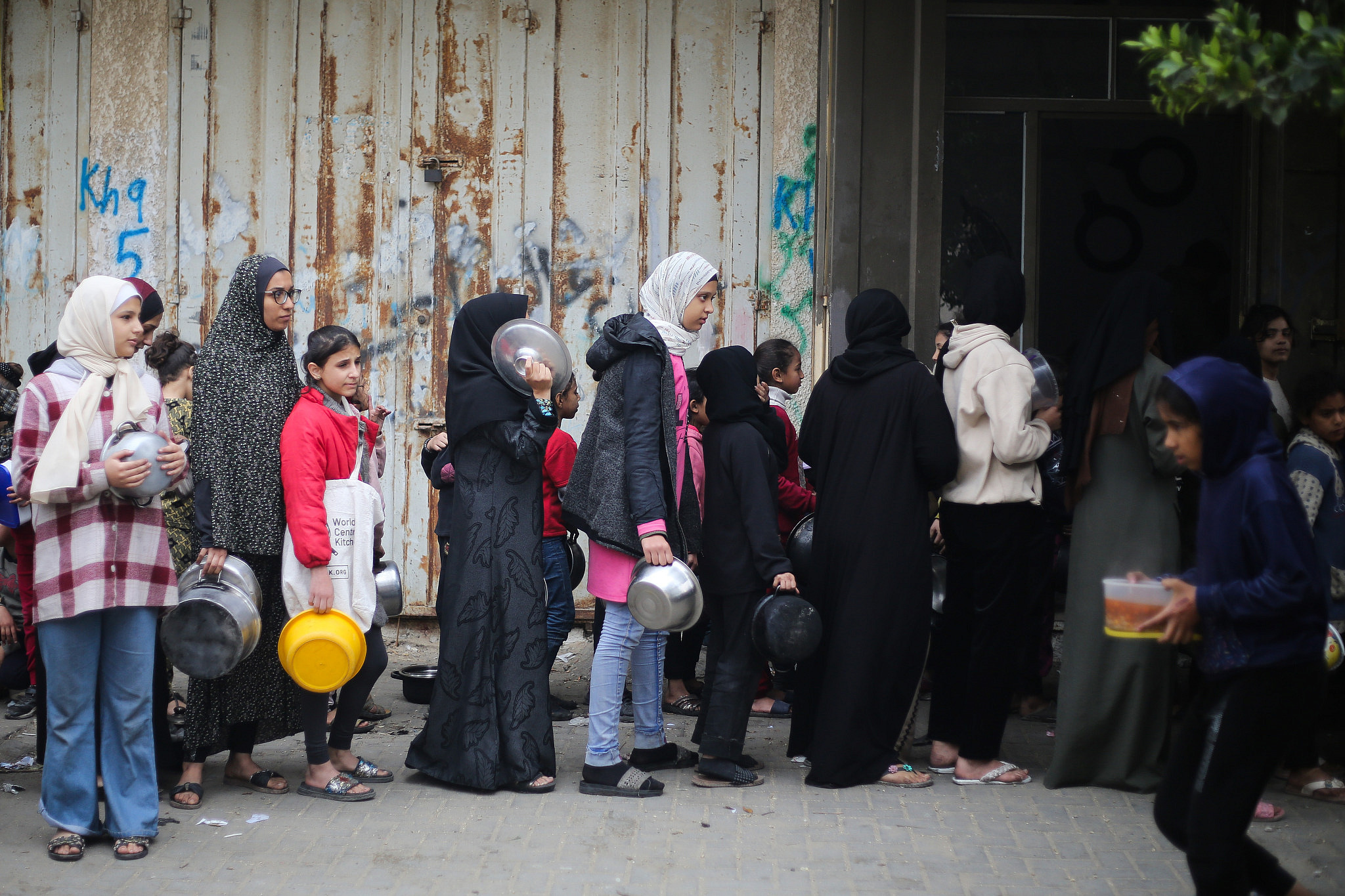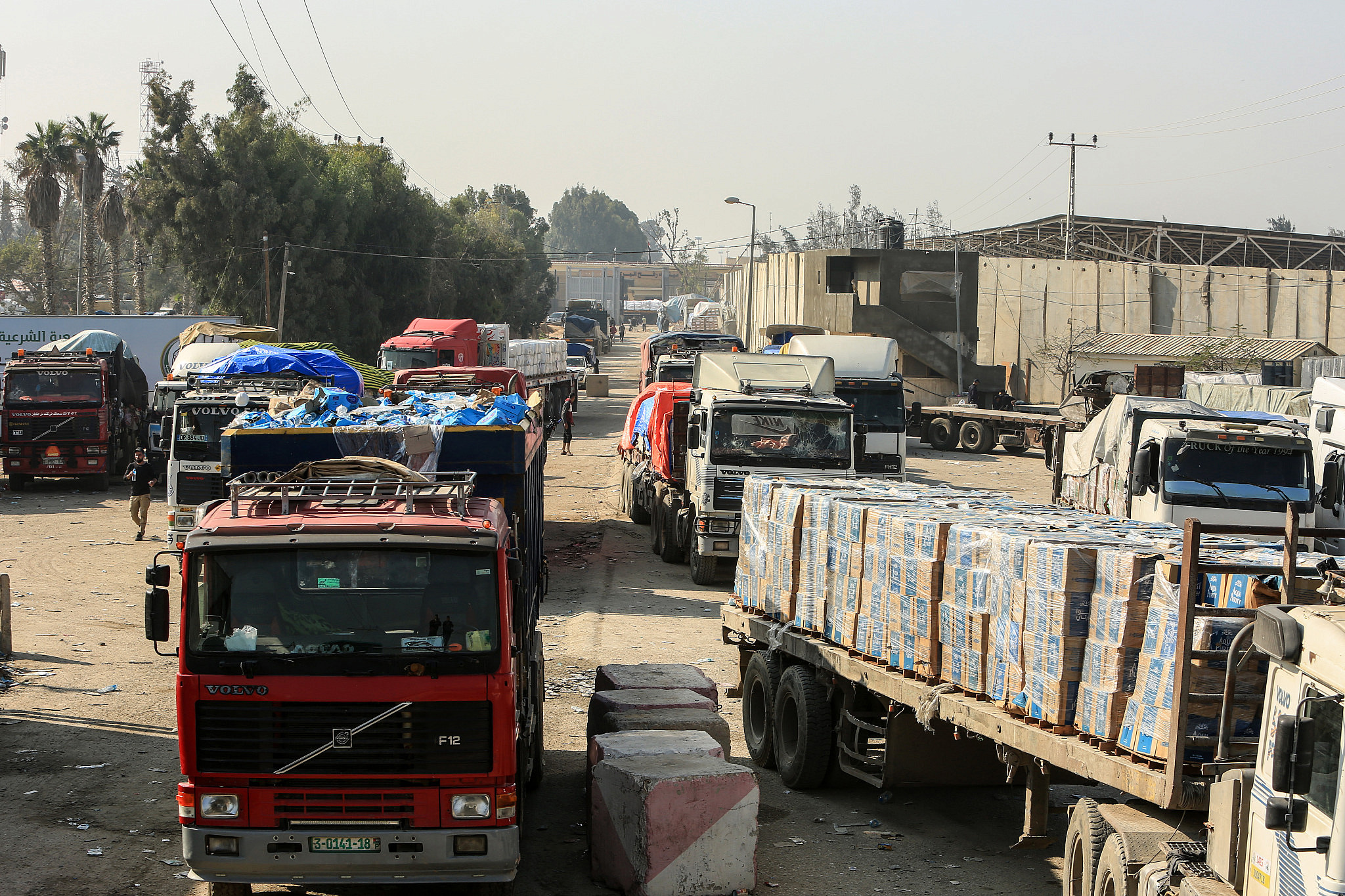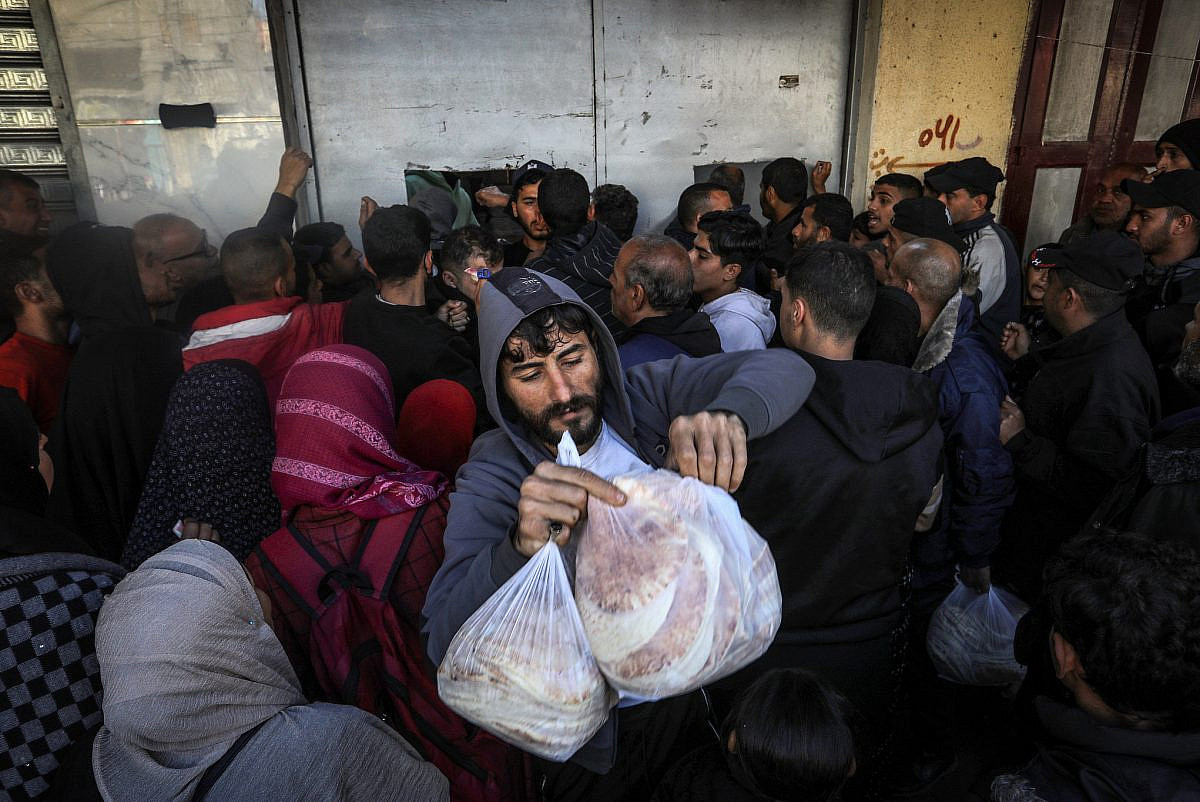The struggle for survival has morphed into a haunting and totalizing reality for Palestinian residents here in Gaza City, as it has for Palestinians across the entire Strip. Against the backdrop of intensified Israeli military attacks, the deprivation of food and water under a tightened siege, and the pervasive threat of epidemics with no medical aid, the city’s remaining inhabitants — even as they fight to stay alive — feel as if they have been left with no choice but to wait for their death.
Israeli forces are persisting in their air-and-ground offensive on Gaza, marking nearly 100 consecutive days of this devastating war. The plight is particularly dire in the northern Strip, where a severe drought and the spread of infectious diseases are exacerbating the already harrowing situation.
Israel’s deliberate isolation of the north from the south of the Strip is further preventing the transport of essential humanitarian aid, adding yet another layer of hardship in the precarious effort to survive in the north. And here in Gaza City, Palestinians — the vast majority of whom are now concentrated in shelters in the western part of the city — are voicing their growing desperation, grappling not only with the immediate perils of the war but also with its ensuing terrors.
Adel Ammar, or Abu Ismail, 43, is from the Al-Zarqa neighborhood of Gaza City. He was first displaced to several schools in the city serving as shelters during the war, and later fled to the campus of Al-Azhar University, which itself was bombed by the Israeli army. “Life here is unbearable — garbage everywhere, no food, and no water,” he said.
Economic hardship, which was difficult enough before the war, has now been exacerbated to unbearable degrees, leaving many Palestinian families desperate to meet basic needs. “For the past two weeks, my children haven’t had a single piece of bread,” Ammar said, tearfully. “Every morning, I evade their questions about breakfast and the news. Literally, I have no food, and I don’t have money to buy rice.

“I can’t endure life here anymore,” he continued. “I watch my hungry children right in front of me, and I can’t do anything for them. Every day, their mother heats water on the fire and feeds them watery soup — a soup that satisfies nothing. It’s just hot water.”
Ammar’s wife, Umm Ismail, 40, also spoke through tears: “I have a newborn son who cries incessantly every day. Breast milk doesn’t satisfy him because there’s no food for me. If some rice is available, I feed it to my other children, even though my son needs me to eat in order to breastfeed. But the infant can’t speak and ask for food, while my other children do speak and ask for it. It’s like a knife stabbing me.”
‘A bag of flour has become a matter of life and death’
For many Palestinians in Gaza, the fear of Israeli airstrikes has become secondary to the slow, agonizing threat of starvation. “I wish I had stayed in my home to die instead of enduring the humiliation of displacement and misery here,” said Rami Fares, 39, a displaced father of seven.
Fares and his family are currently sheltering at the overcrowded Islamic University in northern Gaza, along with thousands of others seeking refuge (one humanitarian volunteer estimated about 11,000 Palestinians, mostly displaced from Jabalia and Beit Hanoun, were sheltering at the university).
“Don’t ask about food, hygiene, or life here,” said Fares. “It’s like living in a mortuary, waiting for someone to bury you. No food, no drinking water. Even getting saline water is a struggle. I have three daughters, and all I think about is trying to feed them anything to alleviate their hunger.

“We wait for days, and they keep saying ‘Tomorrow flour will be transported from southern Gaza to northern Gaza,’” Iyad Nasr, another displaced resident, explained with deep sorrow. “A bag of flour has become a matter of life and death for us. There is little available flour, and its price is high — we can’t afford to buy it.
“Since last month, our house ran out of flour, and everyone around us is in the same situation,” Nasr continued. “We looked for alternatives like rice, but rice prices have also significantly risen. My siblings and I endure hunger because our elderly diabetic father needs the food for his health, and even so, he experiences a diabetic episode [such as seizures] every two days.”
The scarcity of food staples in Gaza like rice, chickpeas, and lentils has indeed led to sharp price hikes across the board, reaching up to five times their usual cost. One kilogram of rice, for example, cost between NIS 5 to NIS 9 before the war; now, it can cost NIS 20. This economic crisis is made worse by the fact that the isolation of northern Gaza has also entailed the halting of all financial and banking transactions in the area, making it extremely difficult for Palestinians to access their own money.
The result of all this, according to the Euro-Med Human Rights Monitor, is that “71 percent of Gaza’s population is suffering from severe levels of hunger, as Israel uses starvation as a weapon to punish Palestinian civilians.” Such a catastrophic condition, the group warned, threatened an impending, slow death for tens of thousands of Palestinians in northern Gaza.
Most read on +972
“We are living in a famine and an epidemic,” said Ahmed Jundiya, who was displaced to Al-Ramal School in western Gaza City. “No one is helping us, and no one seems to be paying any attention to our situation. Relief organizations in northern Gaza have halted their operations and cannot fulfill their roles. I swear, children sleep without eating.
“If the war continues for another week, we will all die of hunger,” Jundiya warned. “And if we don’t die of hunger, we will die from the polluted water we’re forced to drink.”




